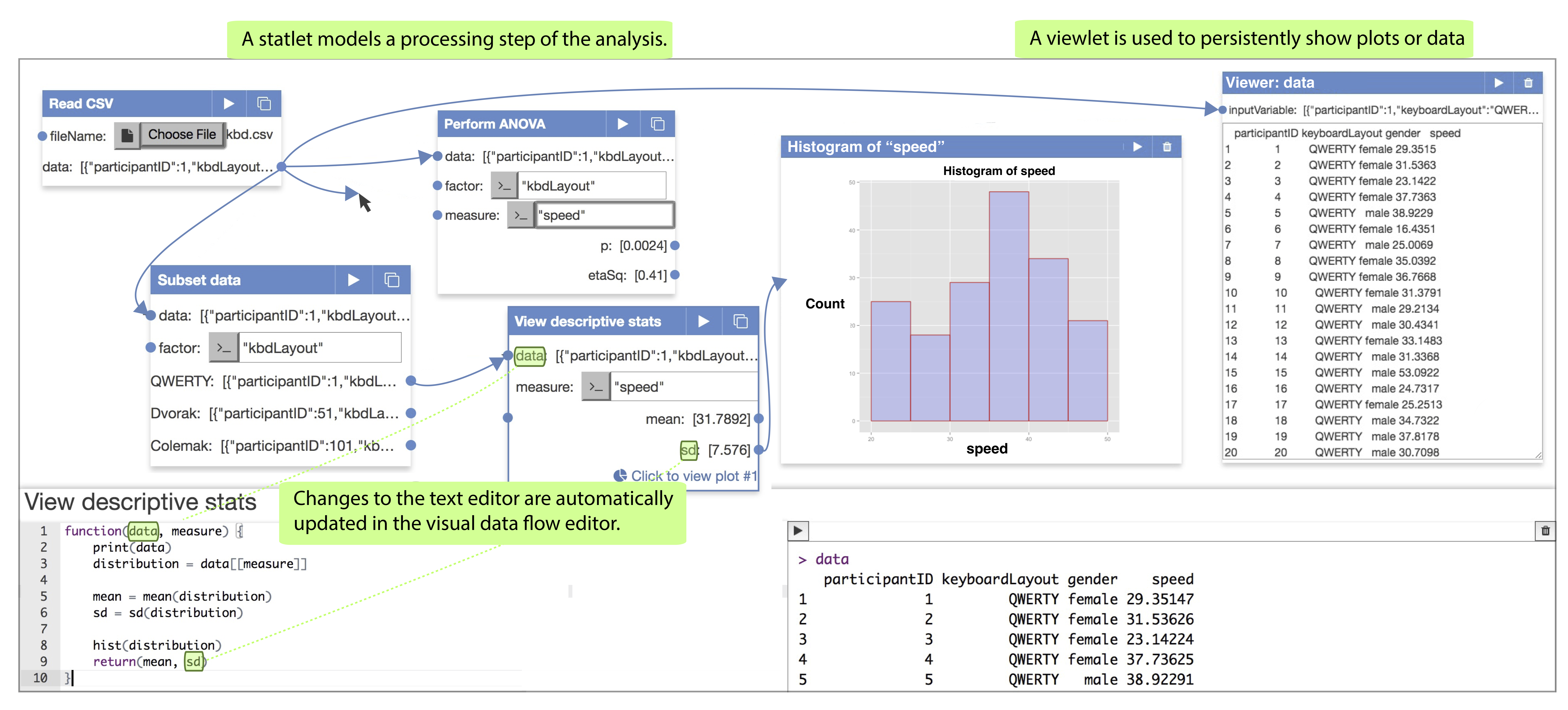
StatWire is a hybrid IDE for R, the most commonly used statistical programming language. StatWire integrates the traditional text editor with a visual data flow editor to better support the data-driven, non-linear, and iterative workflow of statistical analysis. The source code can be found here.
We present our work as a Late-Breaking Work at the ACM CHI 2018 conference in April 2018. Session: Poster Presentations Rotation I, Tuesday: 10:20–11:00 and 15:20–16:00h.
Video
The 30 second video preview can be found here.
Abstract
Main contact person: Krishna Subramanian
Publications
- Krishna Subramanian, Johannes Maas, Michael Ellers, Chat Wacharamanotham, Simon Voelker and Jan Borchers. StatWire: Visual Flow-based Statistical Programming. In Extended Abstracts of the 2018 CHI Conference on Human Factors in Computing Systems, CHI EA '18, pages LBW104:1–LBW104:6, ACM, New York, NY, USA, April 2018.




- Johannes Maas. StatWire: Visual Flow-Based Programming for Statistical Analysis. Bachelor's Thesis, RWTH Aachen University, Aachen, August 2017.


- Michael Richard Ellers. Statlets: Improving Statistical Analysis with R. Bachelor's Thesis, RWTH Aachen University, Aachen, March 2017.



